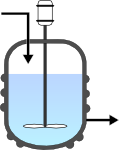
Fom
Fluid object mapper, a Python library for accessing FluidDB
from fom.dev import sandbox_fluid
from fom.mapping import Object, Namespace, tag_value, tag_relation
# Use and bind the sandbox (for playing)
fluid = sandbox_fluid()
# let's start by creating a new Namespace for this application and then some
# tags
# Use the test user's namespace
ns = Namespace(u'test')
# create a child namespace for ourselves
ns.create_namespace(u'maptest', u'a test namespace')
# use our child namespace
ns = Namespace(u'test/maptest')
# create some tags
ns.create_tag(u'description', u'description', indexed=False)
ns.create_tag(u'timestamp', u'description', indexed=False)
ns.create_tag(u'username', u'description', indexed=False)
# Now we will define some behaviours mapping to groups of individual tags
class Describable(Object):
"""Mixin to provide describable behaviour
"""
description = tag_value(u'test/maptest/description')
class Auditable(Object):
"""Mixin to provide auditable behaviour
"""
timestamp = tag_value(u'test/maptest/timestamp')
username = tag_value(u'test/maptest/username')
# And combine our mixins into our concrete model
class Meeting(Describable, Auditable):
"""A Meeting
"""
def __repr__(self):
return 'Meeting: %s' % self.timestamp
# Now we shall use it:
# create a new meeting
m = Meeting(about="a meeting")
# set some attributes
m.description = u'This meeting was boring'
m.timestamp = 123456
m.username = u'aliafshar'
# read some attributes
print m.description
print m.timestamp
print m.username
# so far the changes have not been saved to FluidDB, call save() to update
m.save()
# next we can play with relations.
# FluidDB has no built-int relationships, but fom adds some:
ns.create_tag(u'newspaper', u'description', False)
ns.create_tag(u'name', u'description', False)
ns.create_tag(u'title', u'description', False)
# These examples override the lazy_save flag so that when a field's value is
# updated FOM saves the change immediately (probably not a good idea but used
# here for illustrative purposes)
class Newspaper(Object):
name = tag_value(u'test/maptest/name', lazy_save=False)
class Article(Object):
title = tag_value(u'test/maptest/title', lazy_save=False)
newspaper = tag_relation('test/maptest/newspaper', Newspaper,
lazy_save=False)
n = Newspaper()
n.create()
n.name = u'Foss Weekly News'
a = Article()
a.create()
a.title = 'FluidDB, awesomeness in a can'
a.newspaper = n
# now load our object from the database
l = Article(a.uid)
print l.newspaper